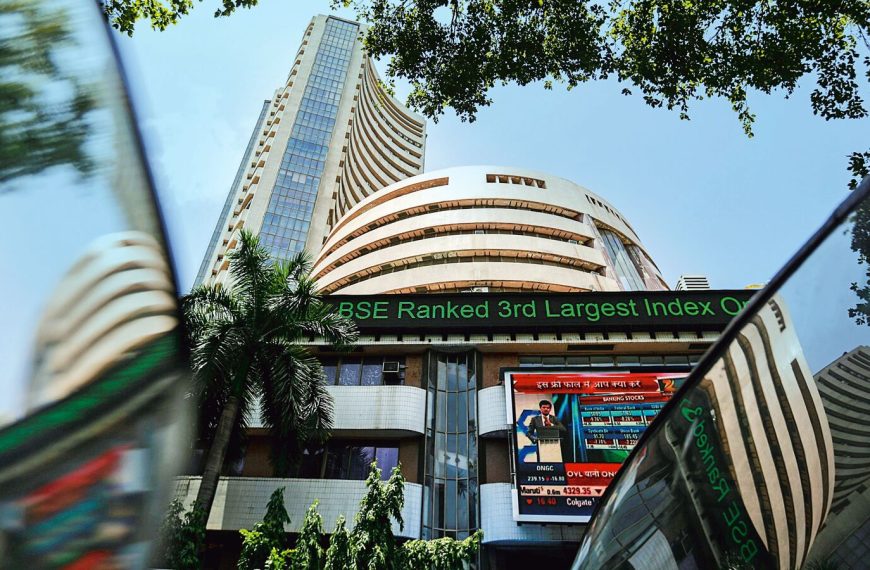As the trade tensions between the United States and China escalate, the U.S. government has confirmed that new tariffs on Chinese imports will skyrocket to 104%, coming into effect shortly after midnight. This development coincides with President Donald Trump’s administration proactively seeking trade negotiations with key allies, including Japan and South Korea.
Impact on Markets and Consumer Confidence
The steep increase in tariffs has intensified the ongoing U.S.-China trade conflict, leading to a notable downturn in the stock market. The S&P 500 index fell beneath the 5,000 threshold for the first time in nearly a year, finishing 18.9% lower than its peak on February 19—just shy of the bear market marker of 20%. Since the announcement of tariffs last Wednesday, companies on the S&P 500 have seen an alarming $5.8 trillion in total value lost, marking the worst four-day decline since the index was created in the 1950s.
- Key Market Data:
- S&P 500 drop: 18.9%
- Total loss since tariff announcement: $5.8 trillion
- First time below 5,000 since February
Concerns in Global Markets
Initially, markets around the globe maintained hopes for a resolution; however, fresh anxieties emerged in Asia following the announcement. The Nikkei in Japan experienced significant declines, indicating that Asian markets are bracing for increased volatility as the tariffs take effect.
Amid these tensions, Trump has organized immediate trade discussions with allies like Japan, South Korea, and Italy, where Prime Minister Giorgia Meloni is expected to visit next week. However, White House officials have made it clear that China will not be prioritized in these negotiations, as the administration accuses Beijing of retaliatory tactics.
Trade Talks and Future Negotiations
“These negotiations are tailored to suit our interests,” Trump stated, noting that over 70 countries have shown interest in joining trade discussions. Yet, he cautioned that the U.S. cannot engage with all parties simultaneously.
- Key Points on Trade Talks:
- Focus on allies first
- No exemptions for tariffs announced
Consumer Reaction and Economic Ramifications
The impending tariffs are already affecting consumer sentiment and corporate strategies. A Reuters/Ipsos poll reveals that 75% of Americans anticipate rising prices. Companies like Micron are preparing to implement surcharges as early as Wednesday, while apparel retailers are postponing orders and hiring. For instance, running shoes produced in Vietnam, currently priced at $155, could rise to $220 due to the new 46% tariff.
International Responses
In response to the escalating trade conflict, Canadian Prime Minister Mark Carney declared retaliatory 25% tariffs on certain vehicle imports, stating, “President Trump has instigated this trade crisis, and Canada will respond decisively.” While Canada is exempt from the latest tariffs, earlier duties imposed on Canadian and Mexican goods remain intact.
The European Union is also gearing up to introduce 25% counter-tariffs on various products, including soybeans and sausages, as they grapple with existing U.S. tariffs on cars and metals. Additionally, European pharmaceutical firms are warning that Trump’s trade policies might accelerate their shift to manufacturing in the U.S.
Looking Ahead
Despite growing calls from business leaders advocating for a reversal of these tariffs, Trump’s stance remains unwavering. In a recent address to Republican lawmakers, he promised substantial tariffs on pharmaceutical imports to encourage domestic production.
As global markets continue to decline and consumers prepare for rising costs, the spotlight is on whether Trump’s aggressive tariff policy will lead to a significant economic shift or push the global economy into a deeper recession.











